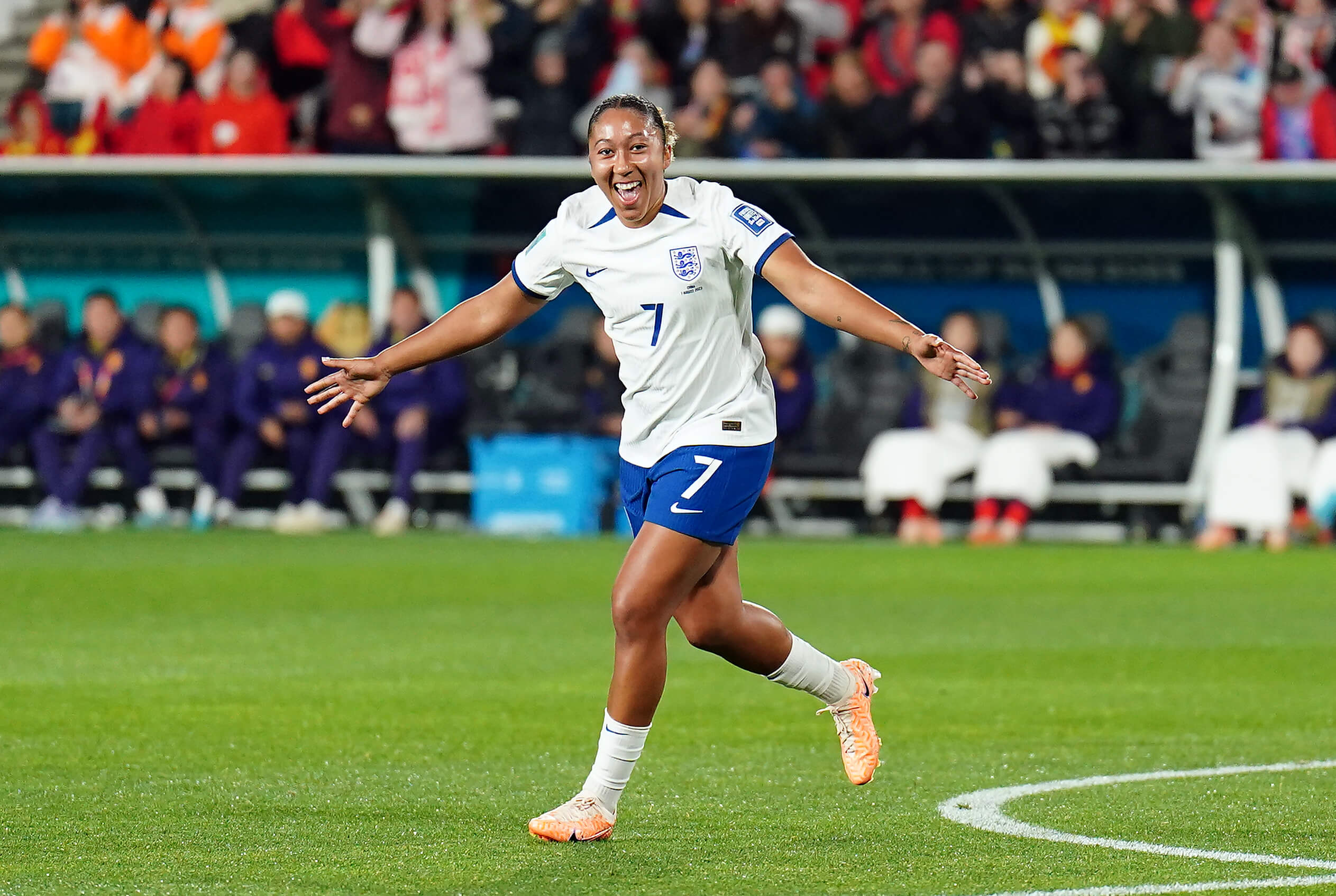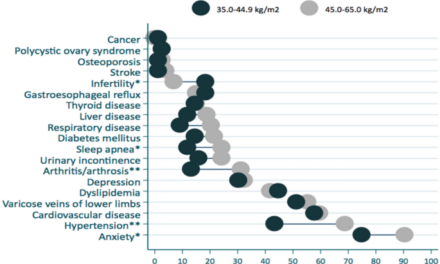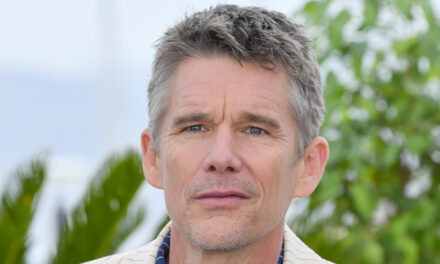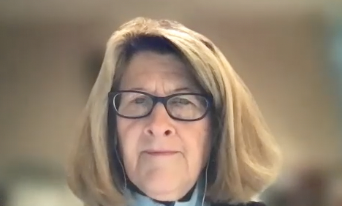Even before her major tournament debut, one could gorge on a veritable box set of Lauren James gold, poring over YouTube videos like one used to in the New Releases aisle of Blockbuster.
On they run, scores of aptly-titled clips of the player who can flow like a comet, whose boots feel speckled with stardust. Lauren James is unstoppable. Lauren James destroying everyone in 2022! Lauren James is a beast!
Advertisement
For weeks, the calls rang out: Lauren James has to start. That first World Cup start yielded James’ first World Cup goal, winning England’s second group game against Denmark. Her second, against China, yielded two goals and three assists and a place in the record books — no England player, man or woman, had ever been involved in five goals in a major tournament match before. Those watching James’ languorous drift — those moments when she floats as easily as one might exhale, coasting like the spores of a dandelion clock — will see now why James is the most talked-about footballer the English women’s game has ever had.

GO DEEPER
The Radar – The Athletic’s 2023 Women’s World Cup scouting guide
England captain Leah Williamson called her England’s “cheat code”. Pundits have her pegged as the best player in the world in waiting. Some footballers are about small touches, feints, dribbling at speed — none, it feels, are as complete as James, able to command the ball with every part of their foot.
“She did special things today,” England manager Sarina Wiegman said after the victory over China. “She flows over the pitch.”

Celebrating goals is already a habit for James at this World Cup (Photo: Zac Goodwin/PA Images via Getty Images)
Who has not, at some point, cooked up in their mind their perfect test-tube footballer? Maybe, as I have, you’ve dreamed up a shadowy figure in an incubator, distilling into syringes the best attributes of the world’s elite: the physical prowess of Cristiano Ronaldo, with the goalscoring prowess of Ada Hegerberg.
This game springs to mind when one thinks of James’ father Nigel — because who else, on these shores, has raised footballers as wildly successful as Lauren and her brother Reece, another Chelsea and England international? How many others have part of the blueprint for a future Ballon d’Or Feminin winner?
Nigel has been asked for it often enough, from parents eager that their offspring succeed his as football’s most famous siblings. The Wimbledon-based Nigel James Elite Coaching does what it says on the tin; Nigel, who enjoyed a brief non-league career for Woking and Aldershot, got the coaching bug when a moped accident sidelined him in his early twenties. It started conventionally enough — after-school clubs, holiday clubs — and as his reach grew he was able to cherry-pick the best local players to join his children Joshua, Reece and Lauren, all born two years apart, in tournaments. England international Conor Gallagher and England youth international Jacob Maddox were among Reece and Lauren’s team-mates.
Advertisement
Nigel’s coaching business filled the James’ garden with cones and balls — maybe as many as 50, Nigel told BBC Sport in 2021, for Reece to practise endlessly crossing the ball for either of his siblings to finish.
Reece joined Chelsea at six, scouted at a tournament at the club’s Cobham training ground one summer. Among his coaches was the current Washington Spirit head coach Mark Parsons, who was back then working at Chelsea’s under-8s development centres. Parsons recalls Reece as “this kid full of energy and love and passion” who could “do it all. He was a striker, if you can position anyone that young. I remember academy coaches, when he reached the under-9s, saying we need to play him in different positions. Nigel was a fan of that as well — that need to develop the whole game.
“Every Monday night, Nigel and the family would be there with Reece. But then also there was this little girl — she must have been five or six — who was the spitting image of him. She would play before we started training: energy, had the ball at her feet, running around, dribbling past everyone, non-stop.” His voice drips with joy. This was Lauren James. “After training finished, she would come on the pitch again. She’d be doing the same thing. I’d look at them: wow. These two are going to be real fun players to see when they’re older.”
They were fun even back then. Parsons recalls how he and other coaches would stay to play with the James siblings after training ended. “The family would be telling them 10 times: ‘We’ve got to go.’ It’s eight, nine o’clock at night. But we were just as big a kids as the kids were. They’d been going for 90 minutes — Reece in the session, LJ on the sidelines — but they loved it.”
Thus began, with multiple Chelsea coaches, conversations with Nigel about when to take Lauren into Chelsea’s centre of excellence. James joined around two years later, training with the under-10s but unable to play in their competitive matches because she was so young.
Advertisement
Those coaches were right to savour those hours with her, and the moments in the company of a player who was so obviously set to go all the way. Even then, they were startled by her dribbling ability and success rate in one-v-ones, not to mention the breadth of finishes from a player who had mastered both feet and was lethal with either. “Those two were so technical,” Parsons says. “Their relationship with the ball was special. She can do anything she wants on the dribble, and she can do anything she wants when it comes to ball striking.” She was relentless, too, in winning the ball back. “That ball was her best friend, and no one could have it,” Parsons adds. “No one was allowed that ball. It was her ball when she wanted to get it back.”
These are the qualities most firmly rooted in Nigel’s coaching. Lauren told The Times in 2018 that her father would tell his children that if they loved football, they should love being on the ball.
At 13, Lauren was scouted for Arsenal, playing with the club’s under-17s. She was, Nigel recounted to the Project Footballer show in November 2021, “still considered the best player” but struggled socially, finding it difficult to find common ground with players studying for A-levels when she was so much younger. A two-year age gap feels huge at that age, but James was understimulated playing with girls her own age at England given she was streets ahead of them. So grew the misconception, Nigel explained, that his daughter didn’t “integrate very well. It’s unreal, what she’s gone through as a player.” Playing with Reece and Joshua provided a suitable challenge. “What she actually used as playtime has been great development,” Nigel told The Beautiful Game Podcast in July 2023. “I can’t see another girl out there having that calibre of boys to play with, and those boys turning into England internationals.”
James proved too good to train with Arsenal’s girls’ teams. Pedro Martínez Losa, Arsenal Women’s first-team manager from 2014 to 2017, brought the 14-year-old to train with his players on a day-release scheme, James staying away from home and given a tutor. She became the second-youngest Arsenal Women player when she made her debut on her 16th birthday in 2017, but Nigel claims that some first-team players took exception to a player of her age being among their ranks and asked for her to be removed from the first-team squad. The solution was to train with both Arsenal’s male and female academy players.
With first-team football no longer forthcoming at Arsenal but James too young and inexperienced to join up with Emma Hayes’ team at Chelsea, the James family began to look elsewhere. Parsons had kept in touch with Nigel since both parties left Chelsea — “I always said to him: ‘We’ve got to get LJ out to the States, it’s massive out here’” — but West Ham and Manchester United emerged as viable options. James’ Arsenal spell, though ending unhappily, had introduced her to the woman who was then about to take charge of United’s reformed women’s team.
“She trained for the first team with us when I was still a player,” explains Casey Stoney, now head coach at NWSL side San Diego Wave. “She came into the environment and I was like, ‘Wow – who is this kid?’ She’s unbelievable. Her technical ability is unbelievable, and her strength… She can receive a ball, go both ways. She can explode out of it. She can separate. She can go left and right. She can twist you in ways that I didn’t even know were possible when she did things in training. Her strength, at 16, 17, was unbelievable. You can have technical players and sometimes, at that age, they’re not strong enough to play. She’s a very, very special talent.”
Stoney experienced it first-hand, as a centre-back. “When they can go both ways, like she can, and she’s strong and quick, it’s tough.” She laughs. “I’d normally just try and kick those types of players, but she was 14, so I tried not to do that. I tried to just make sure I was on her side all the time.”
Advertisement
When Stoney was appointed Manchester United manager in June 2018, she reached out to James. “I knew she wasn’t in contract because she was too young. She wasn’t particularly happy there at the time. And I knew that we could maybe nurture and look after her, and help her on the start of her journey.”

James quickly became a goalscoring sensation at Manchester United (Photo: Simon Stacpoole/Offside/Getty Images)
Nigel warmed to Casey as a stand-in mother figure for a daughter moving away at 16. James scored United’s first Championship goal and their first FA Cup goal. Her first season at Manchester United yielded 14 goals in 18 games. She scored United’s first WSL goal the following season, finishing as their top scorer, and scored United Women’s first goal at Old Trafford.
“I learned a lot, actually, from her,” says Stoney. “Managing her was different. She was 16 years old, away from home, living with a host family. She was still in education. She had ups and downs in the first year to two years. I did a lot of research and education on the young mind, and how you’re not formed to make decisions: how you think emotional rather than rational when you’re younger, in terms of your frontal lobe development. I had to learn a lot to make sure I could manage her in certain ways, but also to try to get her to set her own standards. If she fell off track, try to put her on the right track again. Know that she’s going to make mistakes, because she’s young — but try not to highlight those mistakes.”
Among Stoney’s biggest lessons was “what it was to walk in her shoes as a mixed race person”. In February 2021, a 19-year-old James made the decision to speak out in response to racist social media abuse from anonymous accounts: it speaks volumes that this was one of the first times that James, often protected from the press, had spoken publicly about anything. “To try to understand the life that she lived, the experiences that she’s had and how I can support as an ally was something that I was really keen to do,” Stoney adds.
At no previous Women’s World Cup has the intersection between football, society and inequality felt as pronounced as at this one. Player protests have been a backdrop to the tournament and rightly persist on the biggest platform these players will ever have. James, through no choice of her own, will inevitably play a similar role as her star continues to rise. There is significance — in a divided England, in a team whose senior women’s squads have featured few black players in recent years — that the country’s most exciting female footballer for generations is a proud mixed-race woman. But there is a huge personal cost, of course, in shouldering all this alone.
“You’re in a situation where, by nature, her being who she is carries so much inspiration,” says Mayowa Quadri, head of brand for the media platform Versus, which examines football’s societal impact. “I’ve got a few young black women that I mentor. The way they speak about her, you wouldn’t believe it. She just shows that it is possible. But at the same time, I can’t imagine what it’s like to feel like: I’m navigating this. There are not many people I can speak to that have gone before me. And while I have to carry that responsibility, I still have to focus on my game, on this England team. I still have to focus on being this great hope.
“Ultimately, it’s not on Lauren James’ shoulders to make women’s football more diverse. Her lived experience represents what can be possible when the right sort of foundations are in place. There are 100 Lauren Jameses — maybe not at the same talent level — but they didn’t get the opportunity. Maybe they were in a city area where football wasn’t provided, or the stereotypes of young black girls — ‘she’s got attitude’ — have either deterred them from football or didn’t allow them to progress.
Advertisement
“You now have someone who is a superstar in the making or a superstar right now who’s managed to overcome all of that. And while it’s great to praise her, it’s about using that as a teachable moment. Why are there not more, and how do we support so there are more?”
The lack of diversity in the senior England Women sides is a multi-facated issue. There is no quick solution, but a widespread eagerness to see it rectified. “We can’t hang these huge thematic, conceptual ideas on one individual,” adds Amie Cripps, Versus’ deputy editor. “The burden of that can break someone in a really detrimental way and can have someone turn away from the game. Lauren James is still really young. She’ll have this responsibility whether she wants it or not. As a collective, we need to make sure that this is something that we all fight for.”
James returned to Chelsea on a four-year contract in July 2021 — a deal later extended to 2027. Nigel has described Hayes as a mother figure to Lauren, who is still only 21. Hayes has been eager to temper expectations and pressure on James, in part, one imagines, because she recognises the ferocity of the talent she is tasked with mentoring.
“We can’t expect too much too soon,” Hayes told ITV in April this year. “There are still a lot of firsts for Lauren James. We have to be patient, and we have to recognise there’s a lot of other experienced players in this England team who will certainly lead the line as well as she can.”
Chelsea had options, after losing the Champions League final to Barcelona in 2021, to sign more experienced players – but James was their first-choice target. “We knew that Lauren was Chelsea through-and-through and really wanted to come home,” says Chelsea Women general manager Paul Green, “and we knew what unbelievable potential she had from when she was at our academy.
“We opted to try to bring Lauren back as opposed to another winger that went to another top club in Europe that summer. We just felt, given the potential she had and the age she was at, that if we had a chance of bringing her to Chelsea, we should do everything we could to do that. We did, including Hannah Blundell in a deal to go to United and we got Lauren. We feel she has got massive potential to go on and be the best player in the world — or certainly one of the best players in the world — with her natural ability.”
(Top photo: Getty Images; design: Eamonn Dalton)




